In the wake of Covid 19, surveys have revealed a drastic increase in substance use nationwide. Understandably, periods of lockdown induced feelings of boredom and isolation, which led people to self-medicate using alcohol or drugs.
The stress of the pandemic and its impact on daily life not only saw a surge in substance use for drugs and alcohol, but also an increase in relapse due to a lack of available support systems.
This then leaves many people struggling with addiction and finding it difficult to get sober again.
Unfortunately, the worrying rise in substance dependency includes the Surrey locale and has put a strain on pre-existing NHS services.
If you’ve been battling an addiction behind closed doors, or know someone who has, it may provide some relief to know that you aren’t alone.
In Surrey, there are many others struggling to overcome this chronic disease, and solidarity is higher than ever.
At OK Rehab, we’ve helped those from all walks of life to access the treatment they deserve.
By creating personalised referrals, we guide those in need towards a rehab centre most suited to their situation.
Get alcohol and drug rehab in Surrey for a variety of addictions including binge drinking, alcohol addiction, benzodiazepine addiction, Buprenorphine addiction, cannabis use disorder, crack cocaine addiction, ketamine addiction, opioid use disorder, heroin addiction, cocaine dependence or cocaine addiction, any physical dependence or codependency, substance use disorder, and behavioural addictions such as gambling addiction and eating disorders.
Get the help you need from a rehab centre in Surrey by calling our expert team today on 0800 326 5559
What is Addiction?

Otherwise known as substance use disorder, addiction is a disease characterised by the compulsive need to use a substance, or engage in specific behaviours.
The ASAM has stipulated that it’s a “chronic disease of brain reward, motivation, memory and related circuitry”. What this means is that those suffering from addiction aren’t simply unwilling to stop: they cannot.
Often, if alcohol or drugs are absent for as little as a few hours, an individual will start to feel the adverse effects of withdrawal.
The sudden cravings, psychological distress, and symptoms of illness make it difficult to overcome this disorder using willpower.
Although for some, research naming it a chronic long-term disease can seem frightening, it’s done wonders for the way addiction is viewed. Medical science has mostly removed the stigma of shame from those affected- meaning that they’re more likely to seek professional help.
Discover how addiction can be tackled with the help of a drug and alcohol rehab in Surrey by calling us on 0800 326 5559
How to Recognise the Need For Treatment

A common theme among those with an acute addiction is denying that there is a need for treatment. In an attempt to keep reality at bay, individuals may seek to rationalise an addiction.
This can present in a variety of ways: from claiming that concerns have been blown out of proportion, to wilful self-deception
. In actual fact, the denial process is normal among those with substance use disorder. If you recognise this behaviour in someone dear to you, or even yourself, it’s time to look for other signs that a habit has developed into an addiction.
1. Physical symptoms
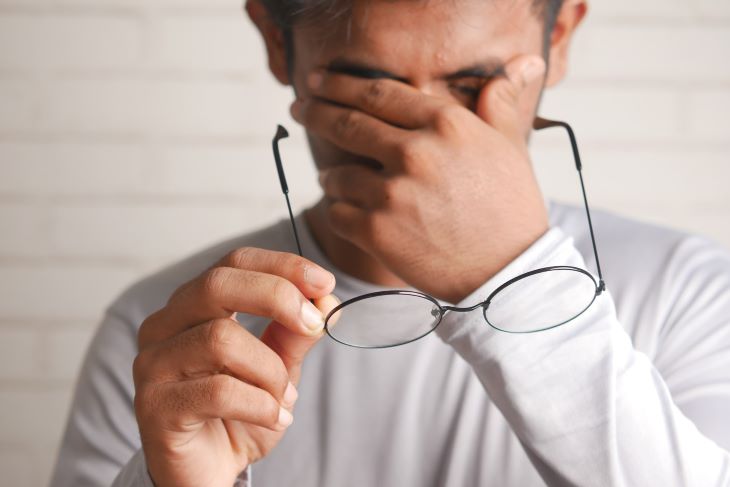
Outward changes to the body and how this affects behaviour are normally the easiest signs to spot. While withdrawal symptoms are associated with someone trying to give up, they can be present in other situations too. With some substances, withdrawal symptoms can appear even if their levels in the body have dipped.
If someone has missed a dose, or not taken as much for whatever reason, symptoms such as shakiness and nausea may appear. Other signs of a withheld substance include insomnia, fatigue, muscle aches, and bowel issues.
In the case of narcotics or marijuana, individuals with an addiction may exhibit appetite changes. If the substance in question is cocaine or amphetamines, the appetites of those using will decrease. Weight loss is common in these cases, as these drugs block feelings of hunger.
However, this can work both ways. For someone battling a marijuana dependency, their appetite may increase dramatically- leading to binge eating and an increased desire to eat.
2. Psychological distress

While mental health is often an internal struggle, the psychological side of addiction often appears externally, too.
As addiction becomes more severe, obsessive behaviours often increase and become more noticeable. Time once spent on other responsibilities might now be funnelled into using a substance. As the need to use grows stronger as a result of cravings, obsessive behaviour will continue to get worse.
Someone’s behaviour may also become secretive, as they wish to hide the addiction from loved ones. This is especially prevalent among those with a high functioning addiction, as they seek to balance daily life with the upkeep of a substance dependency.
Whether due to withdrawal or the exacerbation of underlying mental health issues, anxiety or depression may also increase. As addiction takes hold, you may notice an aversion to social interactions, which can have a negative effect on relationships.
For those with addiction-induced depression, you may notice higher irritability, mood swings, and withdrawal from activities.
You will get a psychiatric assessment by a psychiatrist, to see if you need any psychiatric treatment.
Do you think that you need the help of a rehab clinic in Surrey? Give our team a call today on 0800 326 5559
What Is the CAGE Questionnaire?

The signs and symptoms of substance use disorder mentioned above can vary broadly from person to person, and from substance to substance.
However, it is important to recognise these signs if you or a loved one are concerned with your substance use.
When seeking an assessment for substance use disorder (SUD), one of the most commonly used tools to indicate whether a patient needs treatment for SUD is the CAGE questionnaire.
This questionnaire consists of 4 questions that the person answers with regards to their substance use, and can help to establish some of the primary psychological and physical impacts that the substance use has on a person’s daily life.
It is a quick, non-invasive but thought-provoking questionnaire which is then scored by a professional in order to give more insight into the presence and severity of an SUD.
To learn whether or not you need the help of an alcohol and drug rehab in Surrey, talk to our expert team today on 0800 326 5559
Pre-rehab: What is an Intervention?
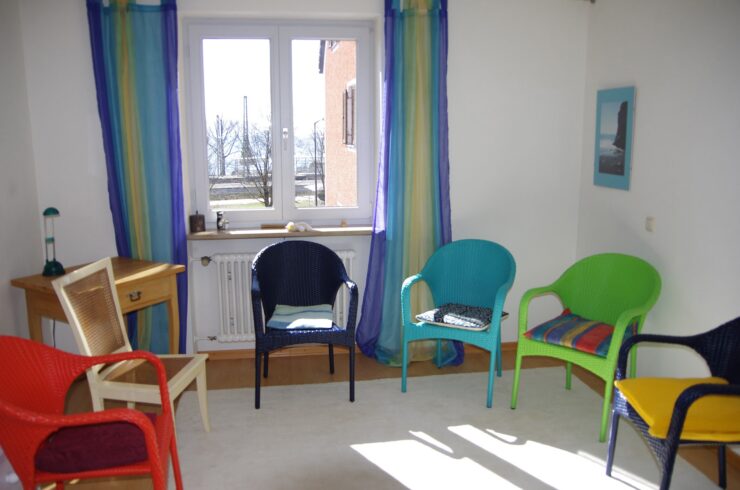
Do you have a loved one with a substance addiction? If so, then you might need to consider holding an intervention.
If your loved one is open about their substance use, and is ready to enter into rehab treatment, then this might not be necessary. In this case, you can get in touch with the friendly team at OK Rehab to discuss treatment options.
However, often people struggling with addiction will be resistant to treatment or to talking about their difficulties for a number of reasons. Denial, shame and fear of judgement are just some of the reasons that many people find it difficult to seek treatment themselves.
In these cases, contacting a professional interventionist in Surrey might be in your and your loved ones best interests. Professional interventionists arrange interventions, whereby the persons loved ones meet in a group with the person in need of treatment, and discuss their concerns.
Professional interventions can often be the motivation one needs to seek treatment, and show the person that they have a support network of people who care for them.
However, it is important to contact a professional interventionist rather than trying to host an intervention yourself.
During an intervention, the way in which treatment is discussed is of great importance, and every step must be approached with empathy and understanding.
Professional interventionists are trained in the best way to communicate with someone struggling with addiction, and can act as a neutral mediator during the intervention when emotions can often run high.
What Is the CRAFT Method?

The Community Reinforcement And Family Training (CRAFT) method of intervention is used by professional interventionists and CRAFT therapists in order to help the family and friends of someone with substance use disorder to help their loved one in recovery.
This approach focuses on how to communicate with someone struggling with addiction, using positive reinforcement when someone cuts down or abstains from substance use rather than more confrontational approaches.
CRAFT can help family and friends to support their loved one, confidently communicate with them and aid them in their journey of recovery.
Make sure that your loved one gets the help they need from a rehab in Surrey by calling us today on 0800 326 5559
What Is the Average Cost of Drug & Alcohol Rehab in Surrey?

The cost of drug and alcohol rehab in Surrey will depend on a range of factors including the type of treatment (inpatient or outpatient), the specifics of the treatment plan (length of time, therapies) and the category of treatment (private or NHS).
Drug and alcohol rehab in Surrey is free on the NHS, with residential and outpatient treatments available. This is a good option for many people who are not financially able to attend a private rehab in Surrey, and is available for everyone.
However, there are drawbacks to NHS treatment, including long waiting lists, limited facilities and less opportunities for inpatient and intensive treatment options.
Private rehab is another addiction treatment option in Surrey , which costs an average of £495 per day.
Although this option comes with a fee, waiting times are often minimal (hours or days compared to months) and there are more options for different types of treatment including inpatient treatment and different therapies which can support your recovery.
The cost of residential rehab in Surrey can vary widely as it covers everything from the cost of a room to the use of facilities,24/7 staff and the different treatments.
For example, the cost of a shared room can be between £2,000 and £4,000 for a 10 day stay, whereas a private room costs between £3,000 and £6,000 for the same period.
The cost of private drug and rehabilitation in Surrey can also vary widely, with some rehab clinics charging as little as £1,000 per week and others charging as much as £10,000 per week.
The recommended length of an inpatient stay for a private rehab clinic is 28 days, and therefore the price for an entire course of treatment in a rehab clinic is often around £14,000. However, this also depends on treatments and individual clinic costs.
To find out how much your stay at a rehab in Surrey is likely to cost, give our team a call today on 0800 326 5559
Is Drug And Alcohol Rehab Covered By Health Insurance?

If you are considering private drug and alcohol rehab in Surrey but don’t think you will be able to afford it, then your health insurance might be able to help.
If you have health insurance, depending on your cover, you might be eligible to receive private drug or alcohol treatment in Surrey under your insurance.
Several health insurance companies such as Aviva, BUPA and Blue Cross Shield have policies which cover rehab treatment.
However, whether you are covered or not will depend on the type of cover and level of cover you have.
Find out if you can use your health insurance to cover the cost of rehab today by contacting our team and discussing your rehabilitation needs and health insurance policy.
For help accessing addiction treatment services in Surrey through health insurance, call us today on 0800 326 5559
Is Addiction Rehab Available On The NHS?

Drug and alcohol rehab in Surrey is available on the NHS, and is available free of charge. There are both inpatient and outpatient options, with most of the options available being on an outpatient basis.
The inpatient availability for NHS patients is low, because they do not own any residential rehab clinics, and instead will fund individuals who need residential treatment to stay in a private clinic.
Funding for an inpatient stay can therefore be difficult to obtain, and the process to get funding and then get a room to begin your residential treatment can take around 6 months to 1 year to begin treatment.
Outpatient treatment is also available on the NHS, with therapies such as Cognitive Behavioural Therapy (CBT) and Counselling services which you can be referred to by your GP.
If you are looking for NHS alcohol and drug addiction treatment in Surrey, then the Surrey and Borders Partnership NHS Trust alongside i-access offer a variety of services available including:
- Telephone Support
- Home and Inpatient Detoxification
- Peer mentoring
- Surrey Support groups
- Surrey Recovery cafe
- Relapse Prevention
- Women’s group
- SMART recovery
There is also the Surrey Drug and Alcohol Care line which offers 24/7 confidential support over the phone for those struggling with alcohol and/or drug use as well as their family and friends. They can also help with referrals to other services.
As well as the NHS, there are several charities which offer free alcohol and drug rehab in Surrey, such as counselling or therapy services.
Other types of therapy available at a private rehab include Acceptance and Commitment Therapy, acupuncture, art therapy, cognitive behavioural therapy, dialectical behaviour therapy, drama therapy, Eye Movement Desensitization and Reprocessing, group psychotherapy, motivational therapy, Rational Emotive Behavior Therapy, brief intervention, contingency management, coping mechanisms work therapy, equine therapy, family therapy, group therapy, individual therapy, mindfulness, motivational interviewing, music therapy, and talking therapies.
You can discuss these options with your GP, and of course OK Rehab are on hand to help you find services available in your area.
To further discuss how the NHS can help you to overcome addiction, call our team today on 0800 326 5559
How Long Does Drug and Alcohol Rehab in Surrey Last?
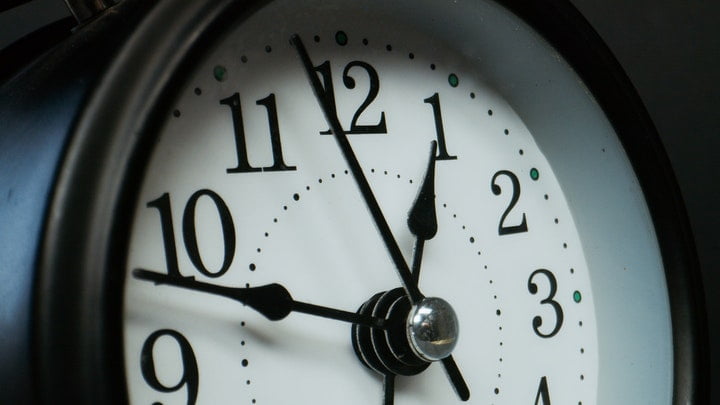
Whether you choose NHS or private rehabilitation and are on an inpatient or outpatient course of treatment, your treatment plan will be catered to you as an individual.
This means the length of your treatment can be very different to someone else’s depending on your needs, the severity of your addiction, the types of treatment you are having and your financial or funding situation.
However, generally speaking, it is recommended that patients attending inpatient treatment should remain in the rehab centre for at least 28 days.
This is to ensure that your body and mind have enough time to be entirely rid of the addictive substance, and that your recovery treatments have had some time to begin helping you out of the addictive cycle.
For severe addictions, inpatient treatments can last up to 90 days or more at an inpatient rehab centre in Surrey, and for brief relapses patients can stay for as little as 7 days.
If you are going through an inpatient or at home detox in Surrey, it is essential to allow at least 10 days for this process.
For heroin and alcohol detox, this is especially important due to the potential severity of detox symptoms which need to be carefully managed until they pass.
Individual treatments such as CBT, addiction counselling or support groups can last a lot longer, with ongoing support available to help you build a brighter future.
When you come to complete your Surrey addiction treatment, you will also have a relapse prevention plan to support you when you face triggers or urges after treatment is over.
Stages of alcohol detox
Alcohol dependence can be confirmed fast and efficiently using the Alcohol Use Disorders Identification Test, DSM-5 or CAGE questionnaire.
Dependent drinkers will have built up a strong tolerance to alcohol, and experience unpleasant withdrawal symptoms (alcohol withdrawal symptoms) or alcohol withdrawal syndrome when they stop drinking, so these symptoms need to be managed carefully.
To ensure that the risk of seizures is curtailed our medical team prescribe patients with Chlordiazepoxide, brand name Librium, as they undergo detox as this has been proven to offer more protection against the risk of seizures.
A medically-assisted detox (alcohol detox) is needed in order to try to prevent the effects of alcohol, including encephalopathy (Wernicke encephalopathy) and delirium tremens.
To find out how long your stay at a drug and alcohol rehab centre in Surrey is likely to last, talk to us today on 0800 326 5559
NHS VS. Private Addiction Treatment

Whether you choose to get alcohol or drug addiction treatment via the NHS or a private rehab in Surrey, getting professional help for your substance use disorder is the best way to begin your journey to a new life free from addiction.
The main differences between NHS and private rehab include:
Average Cost of Rehab:
- NHS: Free treatment and funding for residential rehab
- Private: £495 a day or £14,000 for a 28 day course of residential rehab
Average Drug and Alcohol Rehab in Surrey Waiting Times
- NHS: Between 6 months to 1 year
- Private: 24 hours to 1 week
Drug and Alcohol Treatment Options
- NHS: Not many spaces for residential rehabilitation, more limited treatment options
- Private: Several residential beds available, more freedom over treatment options including complementary therapies
Although there are some key differences in NHS and private drug and alcohol rehab in Surrey, they both offer a high standard of care for patients and are suitable options for anyone struggling with alcohol or drug addiction.
For some help choosing between NHS and private rehab services in Surrey, call us on 0800 326 5559
Inpatient or Outpatient Drug and Alcohol Rehab in Surrey
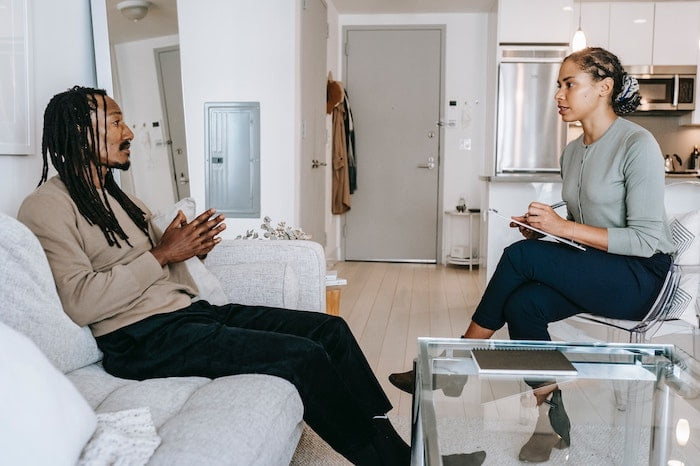
Treatment programs offered by both NHS and private drug and alcohol in Surrey are divided into two main types: inpatient and outpatient.
Inpatient treatment programs (also known as residential rehab) consist of treatments taking place whilst the patient stays in the rehabilitation clinic.
This means that they will have their own room or a shared room, remain in the clinic throughout treatment and have access to staff care 24/7.
Outpatient drug and alcohol rehab in Surrey is on the other hand, are less intensive programs whereby a patient will have treatments such as therapies or counselling, and then return home at the end of the session.
Although residential rehab (inpatient) is the most intensive form of rehab, there are two types of outpatient rehab that a patient can undergo depending on the severity of their condition, their personal needs and the resources available.
Part Hospitalisation Programming (PHP) is a type of outpatient program which aims to provide as much in-person support to a patient as possible on an outpatient basis.
Patients in this type of program will be in a Surrey rehab centre for 5-6 hours a day, 5-7 days a week but will return home after finishing their sessions.
Outpatient treatment can mean that a patient attends sessions for several hours every day, or just a few hours a week.
Often, patients will be seen more often earlier on in their treatment program and this time will slowly decrease over the course of treatment so that they can become more independent in their recovery.
Whilst constructing your treatment plan the addiction specialist will discuss different treatment options with you, and suggest the best type, length and level of treatment you need to create a personalised treatment plan.
To learn more about what inpatient and outpatient addiction treatment services can offer you, call us on 0800 326 5559
Alcohol Detox & Alcohol Rehab In Surrey

If you are finding yourself, or a loved one, is becoming increasingly dependent on alcohol, or are generally concerned about your alcohol use, then it is worth considering alcohol addiction treatment.
Following the referral process, an assessment with an addiction specialist will be carried out to explore the right course of treatment for you and put together your personalised treatment plan.
The first step in your alcohol treatment plan will be a detox, which is the process of eliminating all alcohol (and any other substances) from the body.
Alcohol detox can be a dangerous process to go through, as your body is trying to cope without the physically addictive substance and trying to restore balance within itself. This can lead to both minor and severe withdrawal symptoms.
Withdrawal symptoms can kick in between 6-24 hours after last drinking alcohol, and these symptoms can range from anxiety, irritability and tremors to seizures, a racing heartbeat, fever, confusion and hallucinations (also known as Delirium Tremens – DTs) which can even result in death.
Although mild alcohol addiction may not need a medically supervised detox, moderate and severe cases of alcohol addiction require supervised inpatient or at home detox.
There are options for at-home detox or inpatient detox for alcohol withdrawal, depending on your addiction severity, health, age, home environment and social support network.
During a detox, alcohol withdrawal symptoms can be managed through the use of a prescription drug such as a benzodiazepine (e.g. Librium and valium), which can assist with symptoms in the first 10 days of detox.
Following the initial detox period of 7-10 days when your body recovers from the impact of alcohol, addiction therapies in Surrey will then be used to help you overcome other aspects of addiction such as the emotional and psychological reasons for drinking and finding ways to cope with urges.
Overcome your alcohol addiction with the help of a rehab centre in Surrey – call us today on 0800 326 5559
Cocaine Rehab in Surrey

Overcoming cocaine addiction is different to overcoming an addiction to opioids such as heroin, as there are often little to no physical withdrawal symptoms.
This is due to cocaine’s psychologically – rather than physically – addictivenature, meaning that withdrawal symptoms are not life threatening but are still mentally challenging. Due to this, cocaine detox is not necessary.
Withdrawal symptoms of cocaine and crack cocaine can include irritability, suicidal thoughts, depression, anxiety, extreme paranoia, lethargy and less commonly nausea or vomiting.
Prescription drugs are only sometimes used in cocaine rehabilitation, however they may be prescribed to assist with specific comorbid disorders or prolonged withdrawal symptoms such as anxiety or insomnia.
Overcome your cocaine addiction with the help of a rehab centre in Surrey – call us today on 0800 326 5559
Heroin Rehab in Surrey
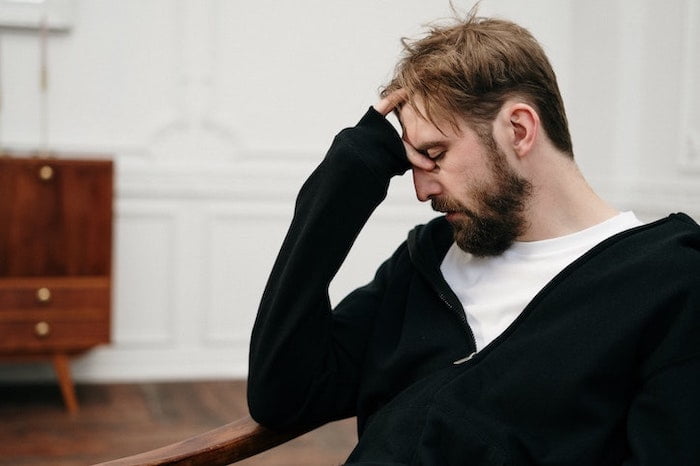
Heroin is a highly addictive opioid, and therefore it is often very difficult to detox from due to severe withdrawal symptoms.
If you are considering entering heroin detox, then there are still the options of inpatient or outpatient detox in Surrey, however all patients will experience a medically-assisted detox due to the potential danger of withdrawal symptoms.
Common heroin withdrawal symptoms of heroin include irritability, anxiety, depression, cravings, nausea, vomiting, insomnia, diarrhoea and autonomic hyperactivity (e.g. fast heart rate, rapid breathing, sweating etc).
These symptoms tend to present within 4-6 hours.
The most widely used medications for a safe heroin detox are methadone or buprenorphine (Subutex). Other medications for withdrawal symptoms such as anti-nausea or anti-diarrhea tablets may also be given.
Following a successful detox, which takes around 7-10 days depending on the individual, further treatment will be administered through addiction therapies, support groups and medications to assist in prolonged withdrawal symptoms and cravings.
You will also get help for overcoming other effects of heroin addictions, such as hepatitis.
Overcome your heroin addiction with the help of a rehab centre in Surrey – call us today on 0800 326 5559
Cannabis Rehab in Surrey
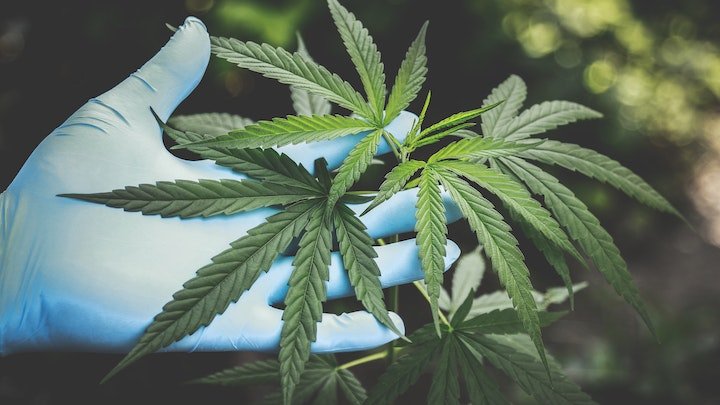
Cannabis is a psychoactive drug which, like cocaine, has less severe physical withdrawal symptoms than heroin and alcohol.
However, many people still develop a psychological addiction to or dependence on the drug, often feeling as though they need it to function despite the negative impact it has on their lives and the lives of those around them.
The withdrawal symptoms that come with cannabis detox, although not fatal or physically dangerous, can still be incredibly difficult to deal with.
Therefore seeking cannabis addiction treatment through a rehab clinic in Surrey can ensure that you stand the best chance of relieving your dependence on the drug.
Withdrawal symptoms for cannabis include mood swings, irritability, headaches, insomnia, sweating, depression, anxiety and stomach pains. Withdrawal symptoms occur in up to 90% of patients with cannabis dependence.
Prescription drugs are not usually prescribed unless it is for a comorbid disorder or to assist with specific withdrawal symptoms.
Following withdrawal, therapies and counselling can then help patients recover from their addiction and plan for the future.
Overcome your cannabis addiction with the help of a rehab centre in Surrey – call us today on 0800 326 5559
What treatments could I receive in a leading rehab centre?

When considering inpatient care, a fear of the unknown often pervades those seeking recovery. The term “rehab” conjures unrealistic images presented by the media, meaning it can be hard to pin down what to expect from a short term residency.
While there’s no “one size fits all” treatment plan, there are certain types of therapy, drug detox supervision, and holistic methods that will be present.
For many patients, initial treatment comprises an alcohol or drug detox phase. Before beginning therapy, it’s essential to gradually remove alcohol or drugs from the body, within a safe environment.
During this time, usually around one week, you’ll have round-the-clock access to a group of specialists.
With years of experience in rehab for addiction, this team will be invested in your recovery, and there to support you every step of the way. As detoxification can lead to withdrawal symptoms, we often recommend that patients accept medical supervision to ease the process. This is often in the form of low dose opiates like Subutex, or mild sedatives.
Once toxins have been purged from the body, you’ll start varying sub-types of the following therapies as part of your personalised care plan.
1. Individual Therapy
One-to-one therapy in the treatment of addiction has been the key to much success over the years. At least once a week, you’ll meet with a counsellor or psychiatrist to engage in talking therapy. Together, you’ll work to uncover the emotions and thought pathways that underpin a substance dependency.
This is often achieved through Cognitive Behavioural Therapy (CBT), a type of psychotherapy that aims to change thinking patterns.
By recognising the negative thought pathways that lead to substance use, patients can work to change these into positive ones. Taking its lead from CBT, Dialectical Behavioural Therapy (DBT) aims to tackle not just thoughts, but the emotions surrounding addiction. This can include healing from past trauma, or learning to create positive emotions moving forward.
Individual therapy can also involve classes like Motivational Interviewing, Motivational Enhancement Therapy, Acceptance and Commitment Therapy, Contingency Management and much more.
2. Group Therapy
Many who have gone through substance use disorder can agree that feelings of isolation are common. In order to replace feelings of loneliness with camaraderie, group therapy is essential to staying sober.
During these sessions, therapists will lead discussions between groups of around 6-11, providing a safe space in which to voice emotions.
On a weekly basis, patients can work through the complex emotions involved in recovery, together. This can include celebrating successes, failures, and even engaging in healthy confrontation.
3. Holistic Therapy
This type of treatment is often seen as providing a break from more rigorous talking therapy, but it has its own undisputed benefits in the field of addiction recovery. Holistic methods aim to inspire a renewed connection between mind and body.
This means taking all areas of daily life, such as eating, sleeping, and hobbies- and making them better for us. From workshops on nutrition to equine therapy, music therapy and art therapy, there’s something for everyone. The purpose is to cultivate a healthier life upon the return home, by practising what makes us feel good.
To experience any and all of these superb treatments at a rehab in Surrey, call us today on 0800 326 5559
Dual Diagnosis For Co-Occurring Disorders in Surrey
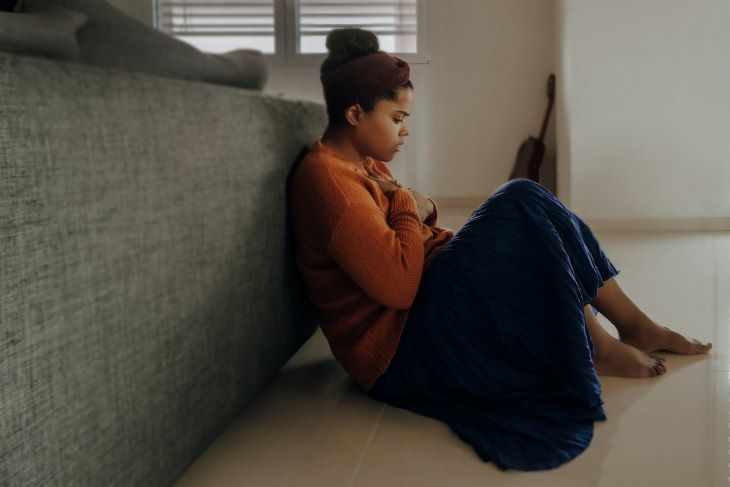
A dual diagnosis is given when a patient is struggling with a substance use disorder alongside another psychological disorder (a co-occuring disorder).
1 in 4 people diagnosed with a substance use disorder are diagnosed with a serious mental illness such as depression, anxiety, schizophrenia or bipolar disorder, therefore the link between mental health issues (depression, post traumatic stress disorder (PTSD), bipolar disorder, borderline personality disorder, obsessive compulsive disorder (OCD) or schizophrenia or anxiety).
and substance use disorders should not be underestimated.
The co-occurring disorders impact one another, often being made worse by the presence of the other. For example, alcohol and alcohol can temporarily relieve depressive symptoms for many people, however prolonged use can lead to increased depressive symptoms.
Substance use disorders can also increase the likelihood of developing psychological disorders, for example cannabis which has been linked to the development of psychotic experiences.
Dual diagnosis allows for the treatment of both disorders separately and together, recognising the impact that they have on one another and how treatment options need to account for both disorders.
If you are diagnosed with a mental illness, or suspect you might have one, then make sure to tell the rehab clinic in Surrey prior to treatment to ensure that you get the right treatment for you.
Learn more about how a drug and alcohol rehab in Surrey will work to support your mental health by calling us today on 0800 326 5559
How Rehab in Surrey Helps With Relapse Prevention

Relapse prevention is a key aspect of addiction treatment, and ensures that you are well prepared and supported when treatment is complete.
Relapse prevention plans are put together when you come to the end of your treatment, and are designed to decrease the likelihood of you relapsing.
Unfortunately, relapse is a very real challenge which many people face during their recovery journey, but with a relapse prevention plan you can be prepared.
Relapse prevention plans are personalised, and made in collaboration with your addiction specialist in rehab.
They will contain advice on how you can deal with triggers, what you can do when cravings occur and what support is available to you if you experience a relapse.
Make sure that you beat addiction once and for all at a rehab in Surrey – call our team today on 0800 326 5559
Aftercare And Support Services Once Rehab Is Completed

Aftercare ensures that you are fully supported throughout your recovery journey, not just when your treatment has finished.
There are a variety of aftercare and support services available in Surrey, including those which will be recommended by your rehab centre. Some of the most commonly used aftercare and support services are listed below, and these can be utilised by anyone when you need them.
- Narcotics Anonymous
- Alcoholics Anonymous (following the 12 steps that suggest you give yourself over to a higher power)
- SMART Recovery (Self Management and Recovery Training)
- Al-Anon Family Group Meetings
- Outpatient treatment through the drug and alcohol rehab team in Surrey
There are also many charities and other useful services listed on the Talk to Frank website, which offer online, telephone and local in-person support for those in addiction recovery and their families.
Drug and alcohol rehab in Surrey can help you or your loved one to tackle your addiction in a safe, healthy and supportive environment.
Whether you are deep in your addiction and keen to get inpatient treatment right away or just interested in seeking outpatient support for a less severe addiction, the right help is waiting for you with NHS and private addiction treatment in Surrey.
Make sure that your stay at a rehab in surrey is matched by an equally effective aftercare plan by calling us today on 0800 326 5559
Charities & Organisations in Surrey
1. Surrey Drug and Alcohol Care Ltd
Address: 39 Castle St, Guildford GU1 3UQ
Telephone: 08088025000
Website: http://www.surreydrugandalcoholcare.org.uk/
2. Catalyst
Address: 14 Jenner Rd, Guildford GU1 3PL
Telephone: 01483590150
Website: http://www.catalystsupport.org.uk/
3. Change Grow Live – Croydon
Address: 190 Church Rd, Croydon CR0 1SE
Telephone: 03001239288
Website: http://www.yeldall.org.uk/
The NHS provides free and reliable information about drug and alcohol addictions and dependencies.
Nearby 12-Step programmes like Cocaine Anonymous, Narcotics Anonymous (NA) and Alcoholics Anonymous (AA) can be a great way to connect with other people in recovery.
SMART Recovery will help you to manage your thoughts and feelings, and cope with relapse triggers.
Al-Anon help to make addiction easier to navigate for you and your loved ones.
More mental health support can be found at Rethink Mental Illness, Mind, Young Minds, Samaritans and Papyrus.
Organisations that can also offer you help and support for free include NHS Foundation Trust, Turning Point, We Are With You, National Association for Children of Alcoholics, Change Grow Live and Alateen.
Rehabs are advised by the American Society of Addiction Medicine and the National Institute for Health and Care Excellence so you are in fantastic hands with person-centered care.
You may get access to sober living houses as part of your aftercare once you are finished at rehab to help you maintain your sobriety and help with relapse prevention.
Get Support Today

The services Rehab Recovery can refer you to are available across Guildford, Shere, Dorking, Woking, Reigate, Godalming, Farnham, Epsom, Cranleigh, Chiddingfold, Ripley, Abinger, Haslemere, Leatherhead, Brockham, Chertsey, Abinger Hammer, Chobham, Staines-upon-Thames, Esher, Godstone, Oxshott, Peaslake, Betchworth, Mickleham, Shackleford, Albury, Alfold, Oxted, Camberley, Banstead, Redhill, Shamley Green, Englefield Green, Cobham, Addlestone, Walton-on-Thames, Hambledon, Windlesham, Lingfield, Weybridge, West Byfleet, Virginia Water, Bramley Leigh, Shepperton, Ewell, Bletchingley , and even more places in and around Surrey.
All of the rehabs we recommend are regulated by the Care Quality Commission CQC (England and Wales) or the Care Inspectorate (Scotland).
At OK Rehab, we offer free advice from a team of non-judgemental professionals, many of whom are in recovery and understand how hard it can be to change your relationship with addiction.
To find out more about rehab in Surrey, simply reach out to our 24/7, confidential hotline on 0800 326 5559.





